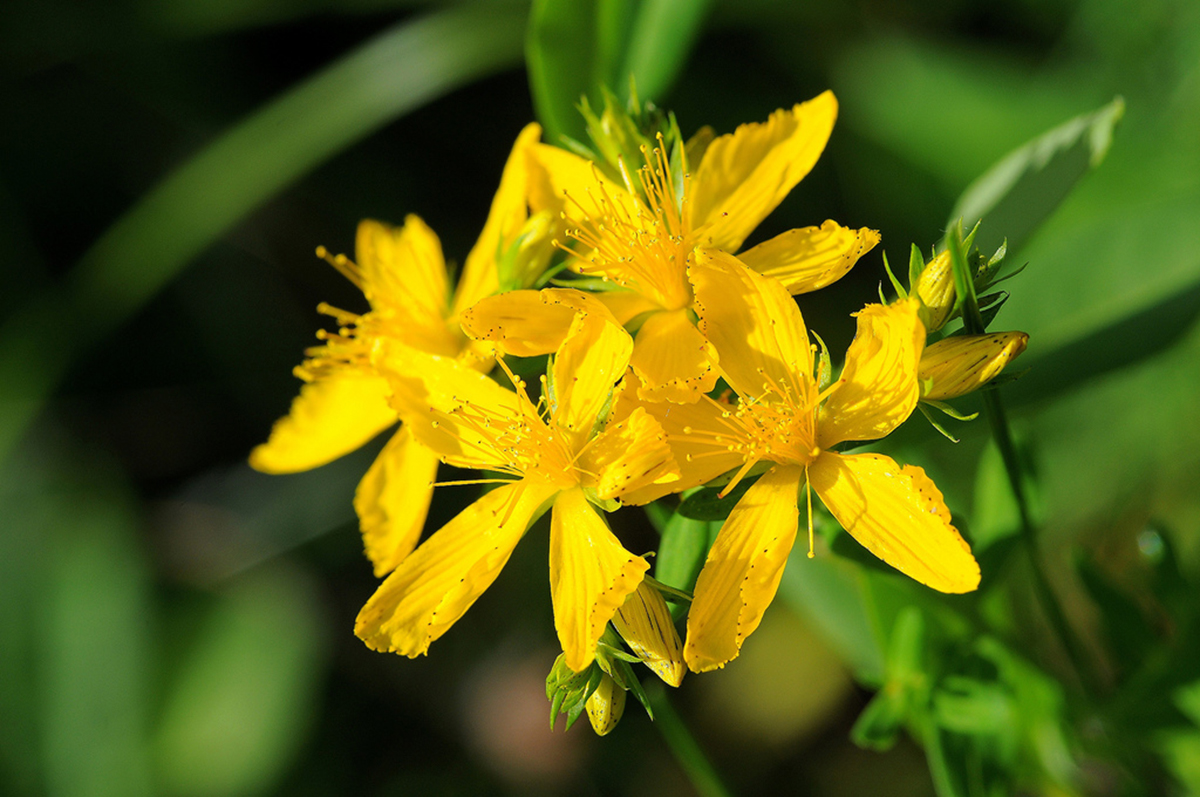Table of Contents
The natural levels of DHEA start to decline in a woman’s body around the age of 30. Some studies have found DHEA supplements can ease the symptoms of menopause, such as low sex drive and hot flashes. However, other evidence about the supplement is mixed. There is some concern about using high doses of DHEA, because it may be tied to an increased risk of breast cancer.

St. John’s Wort
St. John’s wort is well known for treating mild depression and controlling mood swings. However, the herbal supplement might have other benefits for women going through menopause. There is some evidence which shows the herb when combined with black cohosh can improve mood and alleviate menopausal mood swings.
Ginseng
There have been a few studies which have found a link on how different types of ginseng can help to improve a woman’s quality of life during menopause.
However, studies have not isolated if it is either Korean or American ginseng which helps with the physical symptoms of menopause, and the evidence on ginseng as an effective treatment for managing menopause symptoms is limited. Most of the randomized clinical trials are burdened with a high risk of bias. Thus firm conclusions cannot be drawn. Rigorous studies seem warranted.
Wild Yam
Supplements and creams made from certain types of wild yam are often used as alternatives to hormone replacement therapy for women going through menopause. Some of the natural compounds contained in wild yam are quite similar to estrogen and progesterone, but more clinical studies are needed to ensure its safety and efficacy. Studies suggests that short-term treatment with topical wild yam extract in women suffering from menopausal symptoms is free of side-effects, but appears to have little effect on menopausal symptoms.
Vitamin D
Vitamin D is just as important as calcium for healthy bones. Without vitamin D, the body cannot absorb calcium and most adults need 600 IU daily. Vitamin D can be found in many foods and it can also be taken in supplement form. If you are a menopausal woman, it is a good idea to make sure your diet is rich in vitamin D and you may want to speak with your physician for more information about taking supplements.
Red Clover
Many menopausal women use red clover, because it contains natural plant estrogens which can help alleviate the symptoms of menopause. Despite early concerns about red clover, recent studies have not proven there is an increased risk of uterine cancer in women who use the supplement for more than three months. In addition, most of the research done on red clover indicates that it's only minimally effective at reducing menopausal symptoms such as hot flashes.
Calcium
For women going through menopause, bone loss can be a serious concern. Because calcium levels drop after menopause, it is important to get enough of it through diet or by using supplements.
Flaxseed
Flaxseed can be good for easing the night sweats that come with menopause. Flaxseed and flaxseed oil can be helpful to some women with mild menopause symptoms. In one study that was conducted with the help of 140 menopausal women, it was proved that women who took flaxseed for 3 months, menopausal symptoms decreased and the quality of their life increased.
Black Cohosh
Black cohosh is one of the most studied of all supplements for menopausal women. Several studies have found the supplement to be helpful, particularly with hot flashes, but other studies found no benefits. Because taking black cohosh can be risky, it is best to consult with your physician before taking it.
However, a 2016 systematic review examined four studies that researched black cohosh to treat menopausal symptoms. The results proved that black cohosh did not help in a reduction of hot flashes.
See Also: Menopause Herbal Remedy: Could I relieve my menopause naturally?
Prognosis
The hot flashes, insomnia, mood fluctuations and other symptoms that come with menopause can be very unpleasant and hard for a woman to manage. Some women are not candidates for hormone replacement therapy and are forced to seek other alternatives to help them get through menopause. Many women opt to take herbal supplements and have extraordinary results, while others do not notice much relief. Before beginning any herbal supplements, it is advisable for you to speak with your physician or gynecologist to find out if it is safe and will be beneficial for you.
- Photo courtesy of David by Flickr : www.flickr.com/photos/davidw/1368395741
- Photo courtesy of Jean-Daniel Echenard by Flickr : www.flickr.com/photos/34804353@N02/9231772215
- www.ncbi.nlm.nih.gov/pmc/articles/PMC2981010/
- www.uofmhealth.org/health-library/hn-2080003
- www.ncbi.nlm.nih.gov/pubmed/21411558
- www.ncbi.nlm.nih.gov/pubmed/10623319
- www.ncbi.nlm.nih.gov/pmc/articles/PMC3659624/
- www.ncbi.nlm.nih.gov/pubmed/11428178
- www.ncbi.nlm.nih.gov/pmc/articles/PMC4046613/
- www.ncbi.nlm.nih.gov/pmc/articles/PMC3590693/
- www.ncbi.nlm.nih.gov/pubmed/25882265
- ods.od.nih.gov/factsheets/BlackCohosh-HealthProfessional/#h3


Your thoughts on this